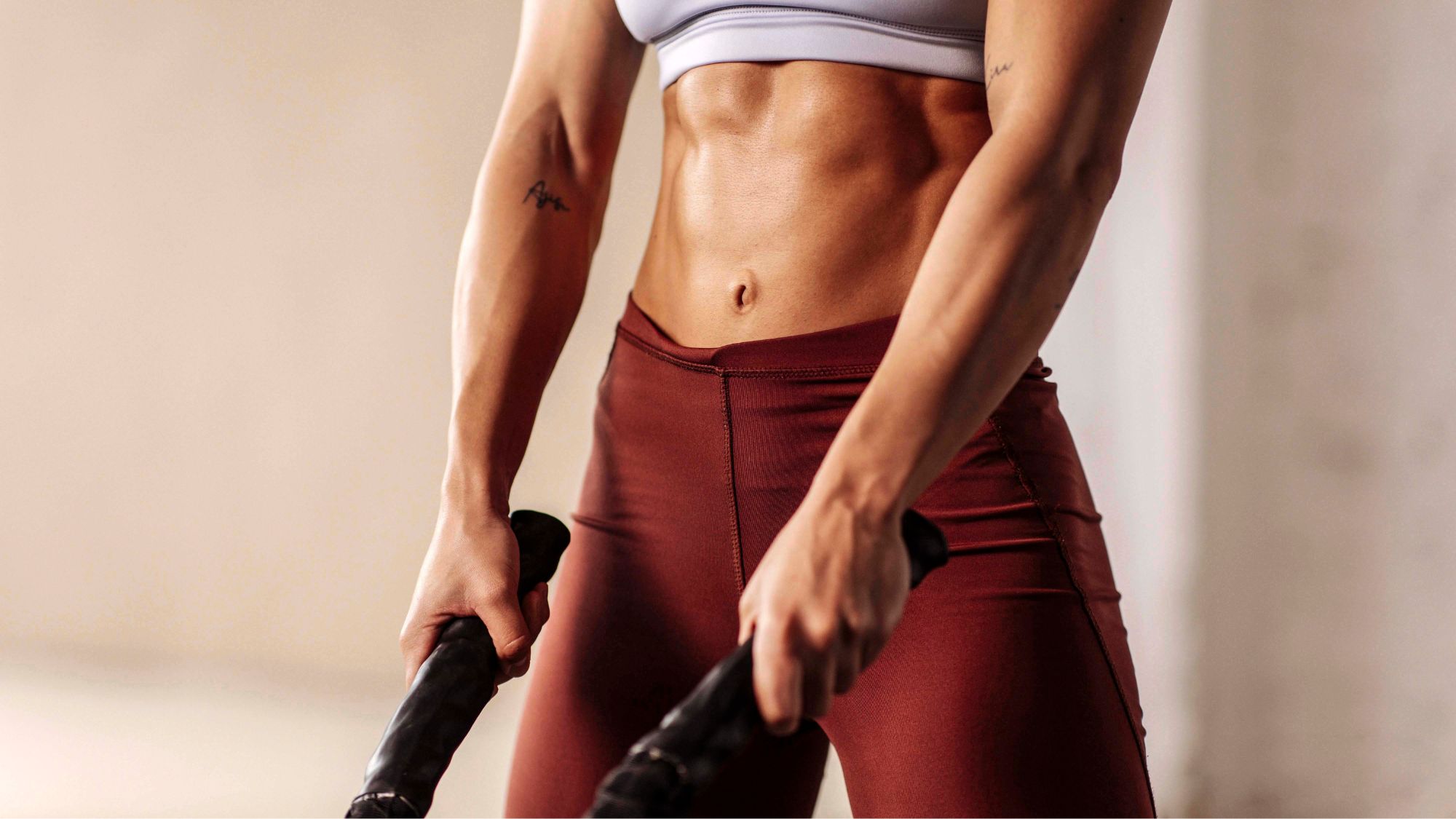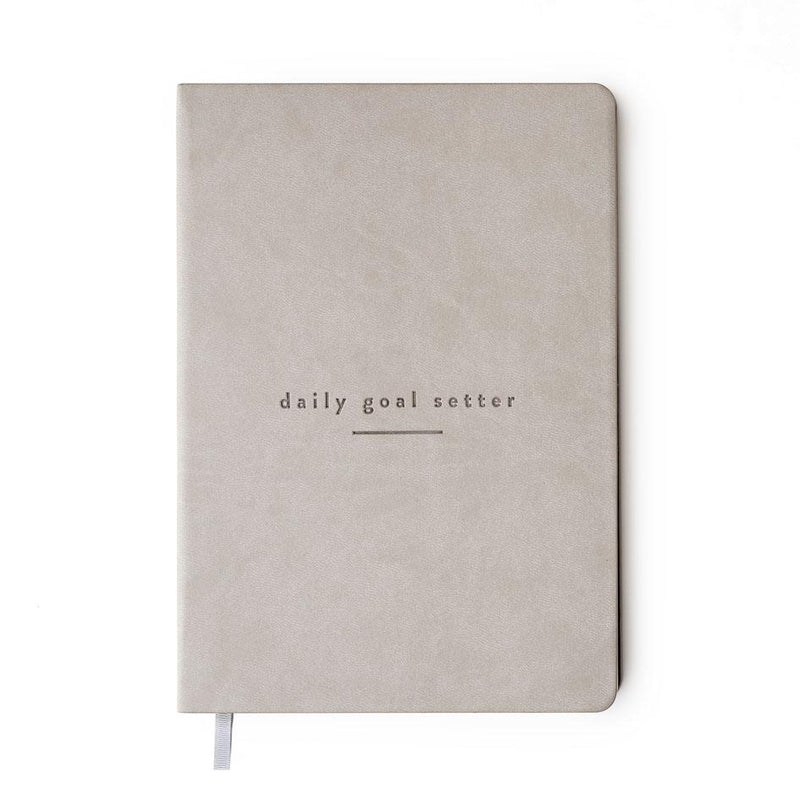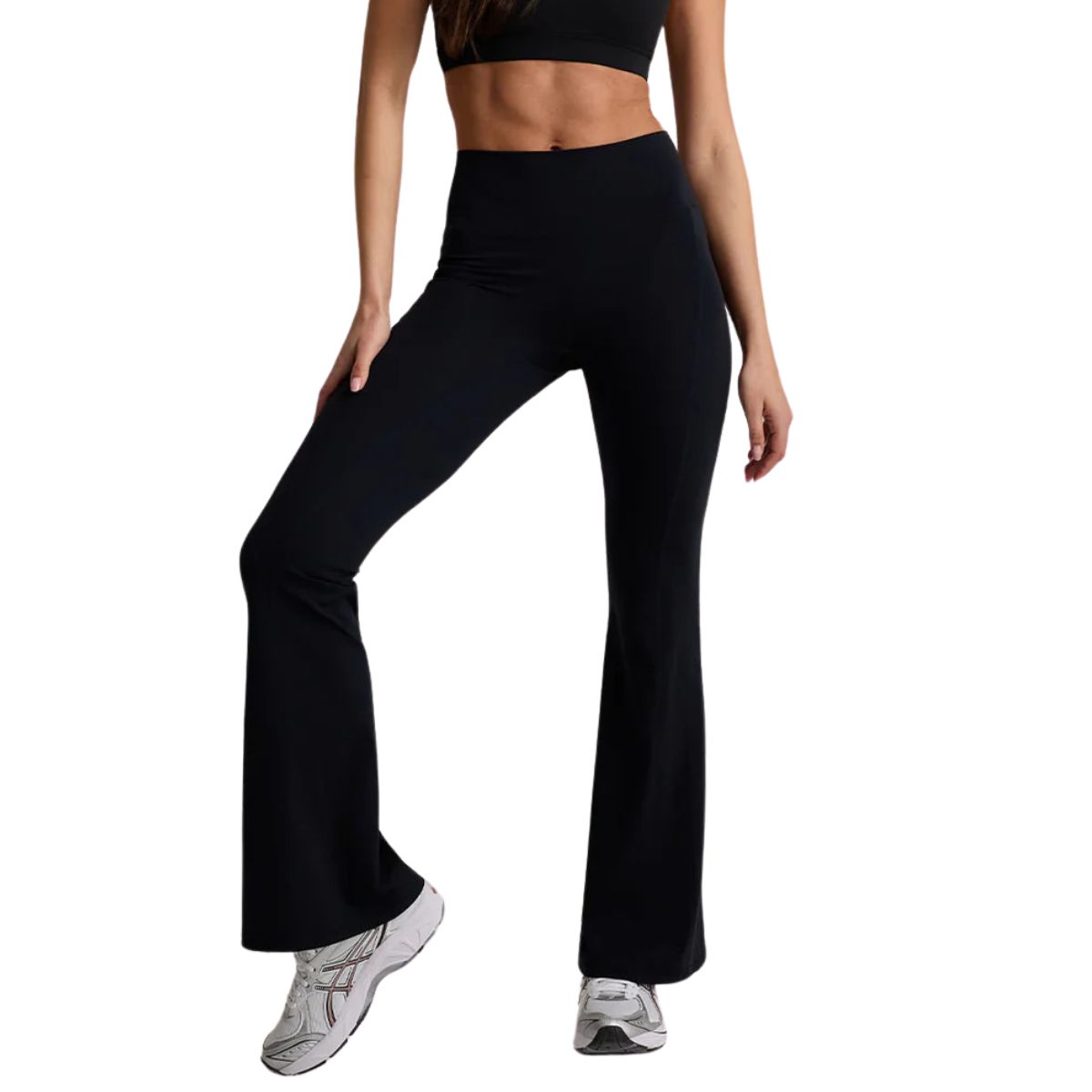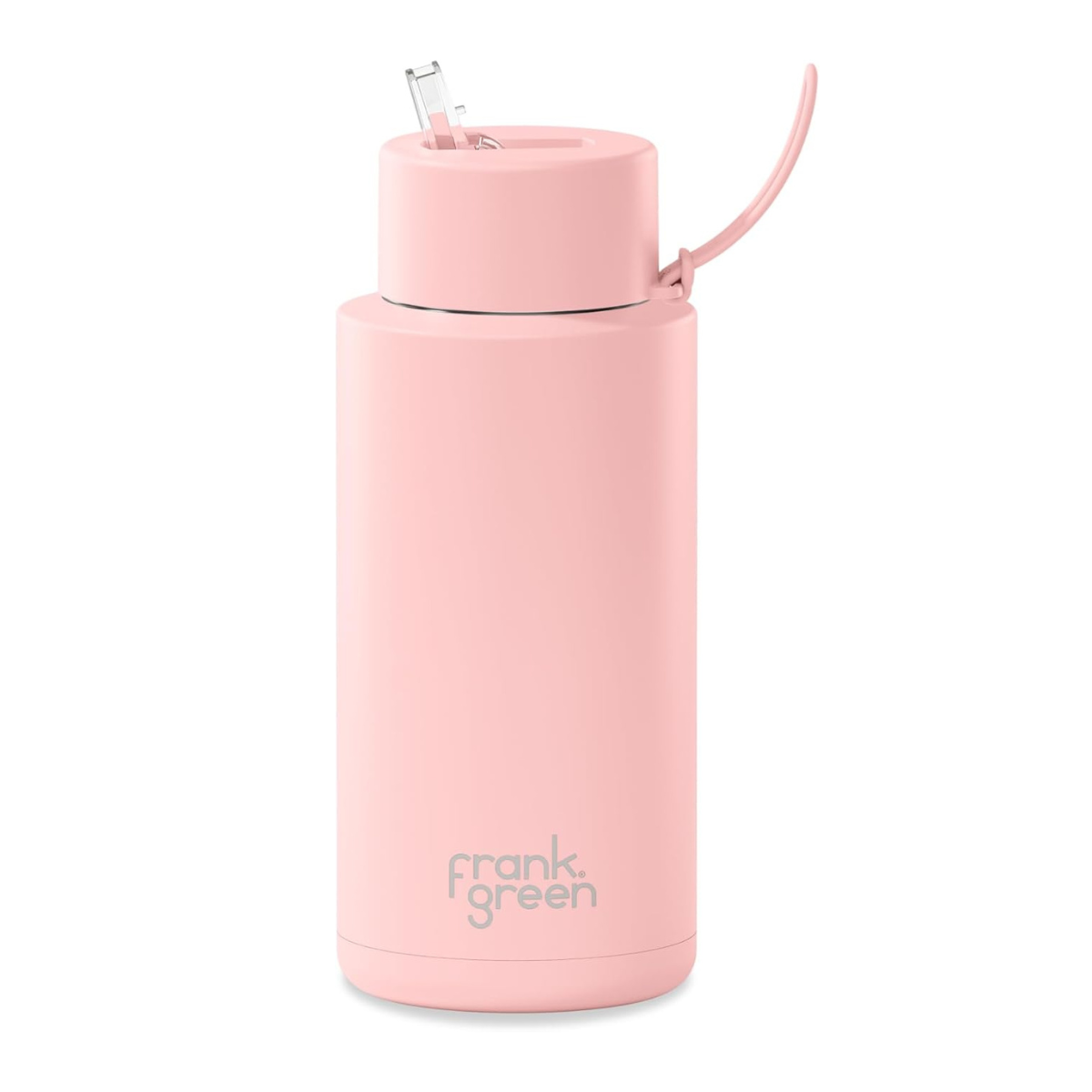Forget 75 Hard - 75 Hotter Is the New Viral Fitness Challenge That You'll Want To Read About
"75 hard, but for the girls."


When the 75 Hard challenge first went viral, I’ll admit I was tempted - I still am. Like many women, I’ve long been caught between wanting a clear plan to push myself and questioning whether extreme discipline is really the route to glowing health. The idea of back-to-back workouts, strict diets and daily progress photos always left me divided: was it empowering or just another way to convince women we need to shrink ourselves to feel 'enough'?
Enter the 75 Hotter challenge - a TikTok-viral rebrand of its cult predecessor that swaps restriction for habits like positive self-talk, reading, skincare, and moving your body in ways that actually feel good. Jade Brant, content creator and brainchild of "75 Hotter" created the challenge to, in her words, “feel hotter from the inside out and outside in.” And that’s where I'm sold.
As a health and fitness writer, I know how to spot a fad diet or wellness hack disguised as grinding through misery for a glow-up. This challenge reframes “discipline” as something nourishing, and reminds us that feeling hot isn’t about punishment or perfection, but about how kindly and consistently you treat yourself – behind closed doors as much as in front of the mirror.
But is a 75-day challenge really the answer to feeling hotter? On the surface, it sounds refreshing: less about punishment, more about positive habit-building. Still, in an era where wellness trends often sneak in the same old food rules under a shinier name, I wanted to know if this one genuinely holds up. So, I turned to the experts who know best and dug into the science to separate feel-good rituals from potential red flags.
Keen to read more about some of social media's most viral health challenges and fitness trends? We've got expert-led takes on the Operation 66 fitness challenge, Winter Arc challenge, and the Shrimp challenge, here. Also, what happened when one MC UK writer tried the 5-5-5-30 Morning Routine in a bid to transform her health.
Ever heard of the 75 Hotter fitness challenge? Why experts warn caution is key
What is the 75 Hotter fitness challenge?
Unlike 75 Hard, which demands two 45-minute workouts every day, no alcohol and no flexibility, 75 Hotter encourages a more holistic approach to becoming the best version of yourself. As Brant puts it, it's "75 Hard for the girls".
- Daily movement (10,000 steps a day, alongside a sustainable workout schedule)
- Prioritising protein and greens at every meal
- Hydrating properly and being mindful of alcohol consumption
- Keeping our spaces clean and tidy
- Connecting with friends
- Progress tracking with journalling and photos
- One self-care treatment per week that makes you feel hotter.
- Make positive self talk a daily habit
What do experts think about the 75 Hotter fitness challenge?
At its core, 75 Hotter is about committing to consistent movement and nourishing meals for 75 days. That’s less punishing than 75 Hard, which famously demanded two workouts a day, no alcohol, no “cheat meals” and daily progress photos, but it still comes with rules.
Celebrity news, beauty, fashion advice, and fascinating features, delivered straight to your inbox!
For personal trainer Georgia Olley, that’s where the issue lies: “It really depends on the person, what’s realistic for one, might be too much or too little for someone else,” she says. “A good week usually includes a mix of strength training, cardio and steady movement, with at least 1–2 days for rest or light recovery. Planning ahead always helps, but don’t be afraid to swap sessions around if you’re not feeling it.”
That flexibility, Olley stresses, is key - and something strict challenges often fail to account for. “Both challenges can be great for people who love structure and accountability,” she says. “75 Hard is intense and very all-or-nothing, which works for some, but for others, it can create a rigid or unhealthy mindset. 75 Hotter feels more balanced and sustainable, with a focus on mindset and long-term habits. From a PT's perspective, that approach is usually more realistic and inclusive.”
But nutritionist Jenna Hope highlights a potential red flag: “Any challenge which has a set of 'rules' or guidelines can be triggering for those with a history of an eating disorder or a disordered relationship with food. For these individuals, it's often recommended to avoid engaging in challenges such as these.”
In short, while the trend can motivate some, for others it risks fuelling guilt or all-or-nothing thinking.
What are the benefits of the 75 hotter challenge?
One of the reasons challenges like this have gained so much traction is the sense of structure and motivation they offer. Research backs this up: the Frontiers in Psychology journal has published over 1,000 studies linking high and specific goals with increased task performance, persistence, and motivation. In other words, giving yourself a clear framework can help drive results.
That said, experts warn that how you structure those goals really matters. “For the average person, 75 Hard's rules promote people making far too many changes at once – which isn’t necessarily a good thing,” Liv Morrison, head dietitian at wellness app Kic, previously told Marie Claire UK. Unlike 75 Hard, however, 75 Hotter encourages daily movement, self-care, and healthier habits in a way that experts like Olley describe as “a far more balanced approach that people are more likely to sustain.”
As for the nutrition side, Hope points out that aiming to include protein and greens at most meals is a smart, evidence-backed habit. “Protein helps to keep you fuller for longer, supports mental wellbeing, cognitive function and general longevity,” she explains. “Greens are a rich source of fibre, iron and Vitamin K.”
Olley agrees that it’s the small, simple changes that matter most when taking on a challenge like this. “Getting steps in doesn’t have to be complicated. Try a short walk in the morning with a coffee in a flask and your favourite playlist, head out on your lunch break, and use an evening walk as a way to unwind.”
Are there any risks to the 75 hotter challenge?
The biggest risk? Expecting transformation to come from a 75-day sprint. Progress photos, for example, can motivate some but harm others. “They often show changes the scale or tape measure might miss and can be really motivating,” says Olley. “But if the focus shifts too much to appearance, especially during a challenge, it can lead to unnecessary pressure or body image issues. True progress also includes strength gains, better energy, improved movement, and mental resilience.”
Hope also warns against forgetting balance: “It’s important that people don't become so focused on the greens that they forget about other vegetables. And where possible, try to limit processed protein sources and ultra-processed vegan alternatives.”
What does the research say?
There’s a good reason a 75-day framework feels motivating. A study from University College London found that forming a new daily habit took a median of 66 days (though it could take anywhere between 18 and 254), which helps explain why a time-boxed challenge can work if it’s flexible enough to fit real life.
At the same time, one of 75 Hotter’s foundational pillars - walking - has strong evidence behind it being a powerful wellness tool. A 2023 study in the European Journal of Preventive Cardiology, looking at over 226,000 people, showed that more daily steps are associated with lower all-cause and cardiovascular mortality, with benefits beginning well below the famous 10k mark.
Our verdict?
As a health writer who’s no stranger to wellness challenges - and someone who’s long been divided about trying the infamous 75 Hard - I have to admit, 75 Hotter has me intrigued. Unlike its rigid predecessor, it feels accessible, flexible, and focused on small, sustainable habits rather than punishing all-or-nothing rules. I love that it blends movement, nutrition, and mindset, while still leaving space for real life. Could it be the challenge that actually sticks? I haven’t tried it yet, but I’m tempted, and for the first time, it feels like a challenge I might actually enjoy following for 75 days, without the guilt or burnout.
Thinking of doing the 75 Hotter challenge? Shop our MC-approved kit here

Investing in a planner feels like a no-brainer before taking on a challenge like 75 Hotter. We love this Daily Goal Setter planner by Mål Paper, which is undated (no wasted pages if you fall off for a week), and it has space for gratitude, affirmations and daily goals - all the things that are part of the process of a challenge like 75 Hotter.

If I were to actually commit to the 75 Hotter challenge, I’d want activewear I could live in every day - and these Chelsea Peers SoftSculpt flares are exactly that. They’re soft, supportive, and just the right mix of gym kit and off-duty practical, meaning they’d work just as well for a Pilates class as they would for getting in your 10,000 steps.

If there's one thing for sure, hydration is not being overlooked in the 75 hotter challenge. Walking 10,000 steps a day alongside a workout schedule means staying hydrated is non-negotiable, and this Frank Green reusable bottle is an MC favourite. It keeps your water ice-cold, and with its sleek design and durable build, it’s as much a style accessory as it is a hydration hero.
Is the 75 hotter challenge safe and effective for beginners?
For beginners, the 75 Hotter challenge can be a motivating way to build healthier habits without the pressure and intensity of more extreme programs - but should be approached with caution.
Nutritionist Jenna Hope explains: “If you're someone who wants to change your wellbeing, this is a gentle challenge and one which generally promotes wellbeing. However, it's not for everyone, and for some people, the structure and rigidity may not be achievable or sustainable."
She adds: "It's important to assess your own level, goals and mental wellbeing to identify whether this challenge would be helpful or harmful for you. In general, I think extreme challenges (which this is not) are problematic as they set unrealistic goals and can often make people feel inadequate when they're unable to see them through.”

Georgia Brown is a freelance journalist covering fashion, lifestyle, heath and fitness. With bylines in Harper’s Bazaar, Women’s Health, and HELLO! where she formerly held the position of Senior Lifestyle & Fashion Writer, she’s also the co-founder of run club Sunnie Runners and is a devoted marathoner. With a particular love for sustainable fashion and slow living, Georgia can often be found sifting through London's best vintage stores to find the best pre-loved pieces.